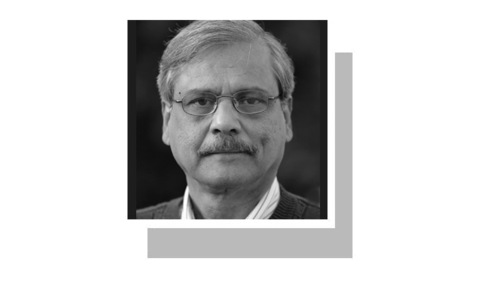IT is becoming clear that during their recent summit in Italy, there was consensus among G7 leaders on using the interest money on frozen Russian assets to fund its planned allocation of $54 billion for Ukraine. European Council President Charles Michel sounded dramatic when he said, “Russia has to pay”. A day later, Russian President Vladimir Putin, addressing the move during a speech, remarked: “Despite all the trickery, theft is still theft, and will not go unpunished.”
For Pakistan, the emerging scenario has serious implications. If Pakistan needs new dollar-based loans, it will likely face higher interest rates. The current global financial landscape is highly interconnected and will affect countries that are heavily in dollar-denominated debt, increasing the risk of sovereign defaults.
The decision has sent significant signals to other major players, particularly China. As a major holder of United States debt, if China starts selling the US debt and refrains from purchasing new issuances, it could lead to a sharp rise in interest rates. Furthermore, if the US and China enter into a confrontation over Taiwan, would the US default on its debt obligations to China?
Over the past century, the world has witnessed three major monetary systems: the Gold Standard until the 1930s, the Bretton Woods system from 1944 onwards, and the current free-floating currency system post-1970s. While the shape of a new monetary system is hard to predict, central banks in major world capitals are accumulating gold as a precautionary measure.
Historically, the financial centre of the world has kept shifting, like from Babylon to Persia, Athens, Rome, Spain, Germany, the Netherlands, the Great Britain, and, finally, to the US after the end of World War II. With the US dollar (USD) being weaponised now, would we see a new financial centre emerge?
Also, could a digital currency bankrolled by the International Monetary Fund (IMF) be a part of the new monetary system in a Bretton Woods 2.0 scenario? Could we see the emergence of the ‘Bancor’, the supranational currency conceptualised by John Maynard Keynes and E.F. Schumacher? Only time will reveal the outcome, but this challenging journey may also offer opportunities. Chinese general Sun Tzu was right when he famously said: “In the midst of chaos, there is also opportunity”.
At times, it may seem as though nothing significant is happening, and then suddenly changes occur so rapidly that they catch investors and policymakers completely off-guard. We should remember the words of Lenin who once remarked that there are decades where nothing happens, and then there are weeks when “decades happen”. Let us be prepared.
Adil Hanif Godil
London, UK
Published in Dawn, June 25th, 2024









































